“I will raise a glass in honor of Texans, and even for those who are not Texans yet… – Chris Brundrett of William Chris Vineyards
I don’t know Texas very well. Having only visited three cities, I feel that I have barely scratched the surface. However, I can say, beyond a shadow of a doubt, that I love Texas. The main reason for that is Texans. Genuine, warm, friendly, gracious, and refreshingly straightforward, they personify many things that are right with humanity. Every time I visit, this sentiment is further validated.
Located in the very heart of Texas, roughly 70 miles north of San Antonio and 80 miles west of Austin, the historic town of Fredericksburg is an immensely popular destination. Agri-tourism, specifically wine tourism, is growing by leaps and bounds. Fredericksburg was founded in 1846, named in honor of Prince Frederick of Prussia. Unsurprisingly, a large portion of its population is from German descent, so much so that there is even a Texas-German dialect.
The city hosts world-famous museums such as the National Museum of Pacific War (that features the new Pacific Combat Zone Exhibit), it has plenty of other points of interest, such as large number of antique shops, art galleries, fashion boutiques, great dining scene and no shortage of small town charm.
Taking a tour around town gives one a sense of communal spirit. The city is impeccably clean, and everyone is unbearably polite. Kids wave at you from across the streets—one gets a feeling of being lost in time. Good old-fashioned values rule here, quality of life is cherished, and people seem unvaryingly cheerful and happy.
As an art lover, I had a keen interest in the city’s art galleries. I recommend stops at several:
The InSight Gallery features a large selection of landscape, figurative, impressionist, still, wildlife, and Western artwork.
- The River Rustic Gallery is another highlight. With its variety of media—beautiful rock art, paintings, photography, sculptures, ceramics, handcrafted wood/glass, and furnishings, it well worth a visit.
- With its extensive array of genres, I also suggest a visit to the Good Art Co.
- For locally produced art, check out the Artisans Gallery.
For dinner, pop into Grove House, a delightful eatery housed in a residential five-room property that has been lovingly restored by its owner, Leslie Washburne. Featuring charming décor that includes a wraparound porch, it serves delicious fare accompanied by well-chosen wine pairings.
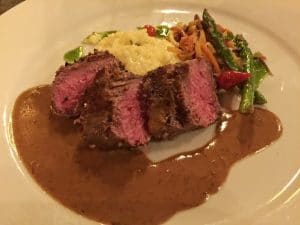
One of the trip highlights was the Culinary School—you will have a boatload of fun making your own breakfast at Fischer & Wiser Specialty Foods, home of “The Original Roasted Raspberry Chipolte Sauce,” now in its 20th year!
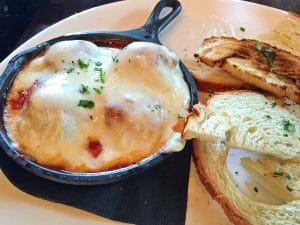
I could not wait to get to Texas Hill Country. The statistics were certainly impressive. Hill Country features 3,500 acres of vineyards and 350 bonded wineries, with a $1.9 billion annual wine industry.
Texans are patriotic to an unbelievable degree. In and of itself, it is an admirable trait, but that sense of pride translates into tens of millions of dollars in the sales of local wine. Most Texas wineries production is sold directly to consumers within the state. Only a few California large production wineries can boast that kind of loyalty. In Texas, however, it appears to be the norm.
I got a chance to visit a few wineries, including:
- Becker Vineyards – Avid gardeners and world travelers, Beckers always loved food and wine. A search for a getaway home led them to 46 acres of land that soon became a vineyard site. Starting small, the production grew to 100,000 cases, with the wine being served in the White House. There are also grow stone fruit and lavender farms on property. They are the largest buyer of French and American Oak barrels in Texas, and contract with a large number of local grapegrowers.
Kuhlman Vineyards – Inspired by the winding creek traversing the Texas Hill Country ranch, Kuhlman Cellars believes wine promotes an appreciation of life’s journey, so winemaking philosophy focuses on earth, vines, people, education and tradition. Their proprietary blends honor the essence of each harvest season by using the highest quality fruit available and paying respect to the distinct geography from which they are grown.
- Pedernales Cellars – One of the best-known brands from Texas. Overlooking the Pedernales River valley, the winery offers guests a tranquil spot, where they can unwind and enjoy the good life. The brand is dedicated to the creation of top-notch wines using environmentally sound practices, with a focus on grape varieties that thrive in the Texas Hill Country.
- Woodrose Winery – Launched in 1999 when winemaker Mike Guilette bought the 24.5-acre property and planted the vines. The portfolio is extensive, the wines are straightforward and fun.
One of the best examples of staunch belief and commitment to Texan winegrowing is William Chris Vineyard. It was founded by, you guessed it, William and Chris.
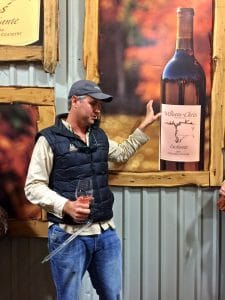
Bill Blackmon has a thirty-years of wine growing experience; planting and managing vineyards on a large scale. Chris Brundrett, who earned a horticulture degree from Texas A&M, quickly took to winemaking and ended up making wine for several brands. Their friendship turned into a business partnership. Their shared philosophy, that great wines are grown in the vineyard, combined with the spirit of sharing nature’ largess inspired the creation of a brand that would, in many ways, define Texas wine patriotism.
The winery settled in historic 1905 Deike farmhouse they have lovingly restored. Their goal is to “own a sense of place” and honor your land and the people who farm it. They utilize traditional European techniques. Top-notch quality and authenticity are their dictums. Their first vintage was produced in 2008.
They believe that the real Texas story is that of human intent, ingenuity, and risk-taking while relying on core values. The sheer size of Texas gives it a lot of power and much in the way of resources to work with. Harnessing these resources and channeling them to create value is paramount to the overall success. In less than three decades, the Texas Hill country has experienced a rapid conversion from a stone fruit farming to grape growing. The sheer volume of grape planting is staggering. Economically speaking, while the rest of the country was floundering, Texas has been booming, with a sizable chunk of economic growth attributable to wine and wine tourism. With rapid growth comes an awareness of the importance of sustainability, in building opportunities to re-live tomorrow the pleasures afforded today. Chris’s enthusiasm is contagious. Listening to him, I could not help but feel that Texas’ wine future is bright.
Clearly, Texas grapes and the ensuing wines are uniquely different from those produced in other wine regions; a concept that William Chris fully embraces. They were one of the original founders of Texas Wine Revolution, an annual festival, showcasing Texas-grown wines. This unique event highlights different varietals each year. Featuring two dozen wineries, it offers tastings, live music, local food and wine-education opportunities.
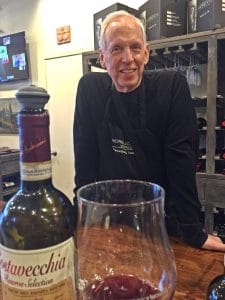
One of the brightest examples of an entirely different philosophy and some of my favorite wines of the trip, came from a spontaneous stop in downtown Main Street at a tasting room. Andreucci Winery was founded by Bill and Patty Sutherland. Twenty years earlier, they followed their hearts—they sold off all of their stuff and moved to Tuscany. There they established founded a cooking school, utilizing the concept of “Tuscan Women Cook” and attracting visitors from all over the world, eager to learn the magic of Tuscan cuisine taught by local women. Needless to say, learning about wine was soon to follow.
Upon their return to Texas, the Sutherlands knew that they wanted to bring a piece of Tuscany back home. They spoke to their favorite vintners and arranged shipments of their top wines. One of their favorites was Flavio Andreucci, a small winery owner that was making waves in Tuscany. His family had owned vineyards for four generations, since the 1790s. Nicknamed by locals “Chicco” or grape, winemaking runs in his blood. University of Siena geology graduate he went back to the family farm and promptly implemented modern scientific techniques, such as meticulous soil analysis, row and vine orientation, to optimize the site and ensure top-notch crops. All winery processes are down by hand and are scrutinized to an nth degree. The resulting wines have an enviable reputation around the world, in a variety of restaurants and even found their way to the White House. Bill and Flavio are collaborating on producing Tuscan style wines using Texas grapes from their vineyard along HWY 290, so stay tuned.
I enjoyed the Sutherland’s entire portfolio. They produce Prosecco, Pinot Grigio, Montepulciano, Brunello, Montepulciano, Merlot, Primitivo, Cabernet and a “Super Tuscan,” called “Regale” – a seductive blend of Sangiovese, Cabernet, and Merlot. Regale offers a gorgeous nose of red fruit intermixed with dry herbs, with hints of tobacco leaf and vanilla bean. Its rich in texture and intensity on the finish is striking.
Walking out of the Andreucci tasting room, I couldn’t help but wonder: What’s the right path for Texas’ nascent wine industry? Many wineries import fruit from California, yet others staunchly stick to Texas-grown grapes. So, should it be Texas all the way? Is it their path to greatness?
My answer is both. The beauty of conducting business in our country is that there is room for different schools of thought, various approaches, divergent views. There is no need to be tethered to tradition, dogmas, or exclusionary thinking. To that, let’s slip on a pair of cowboy boots and raise a glass of Texas wine.

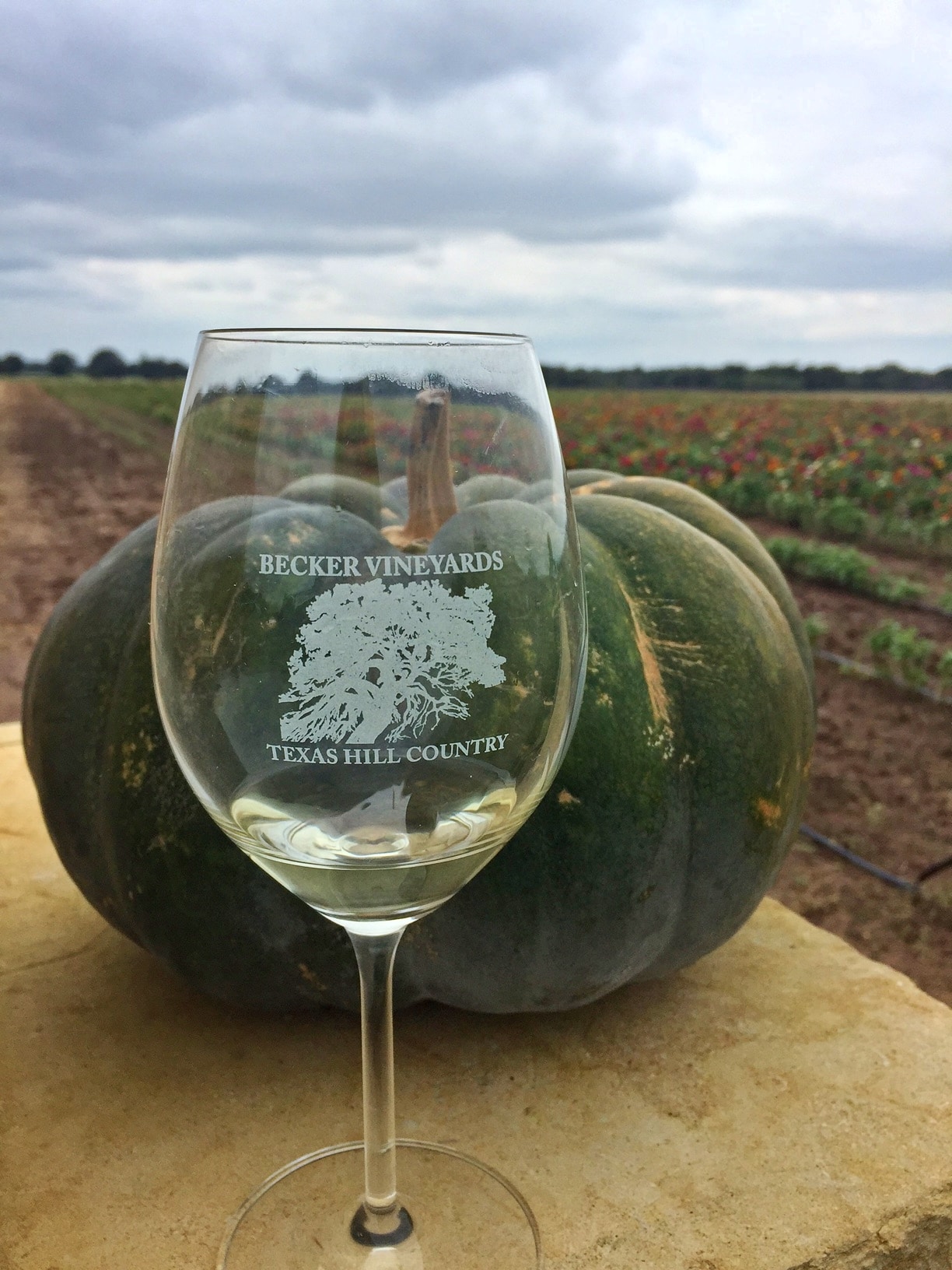

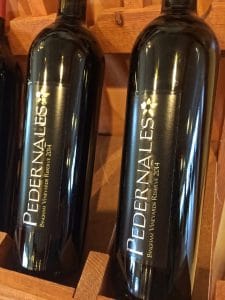


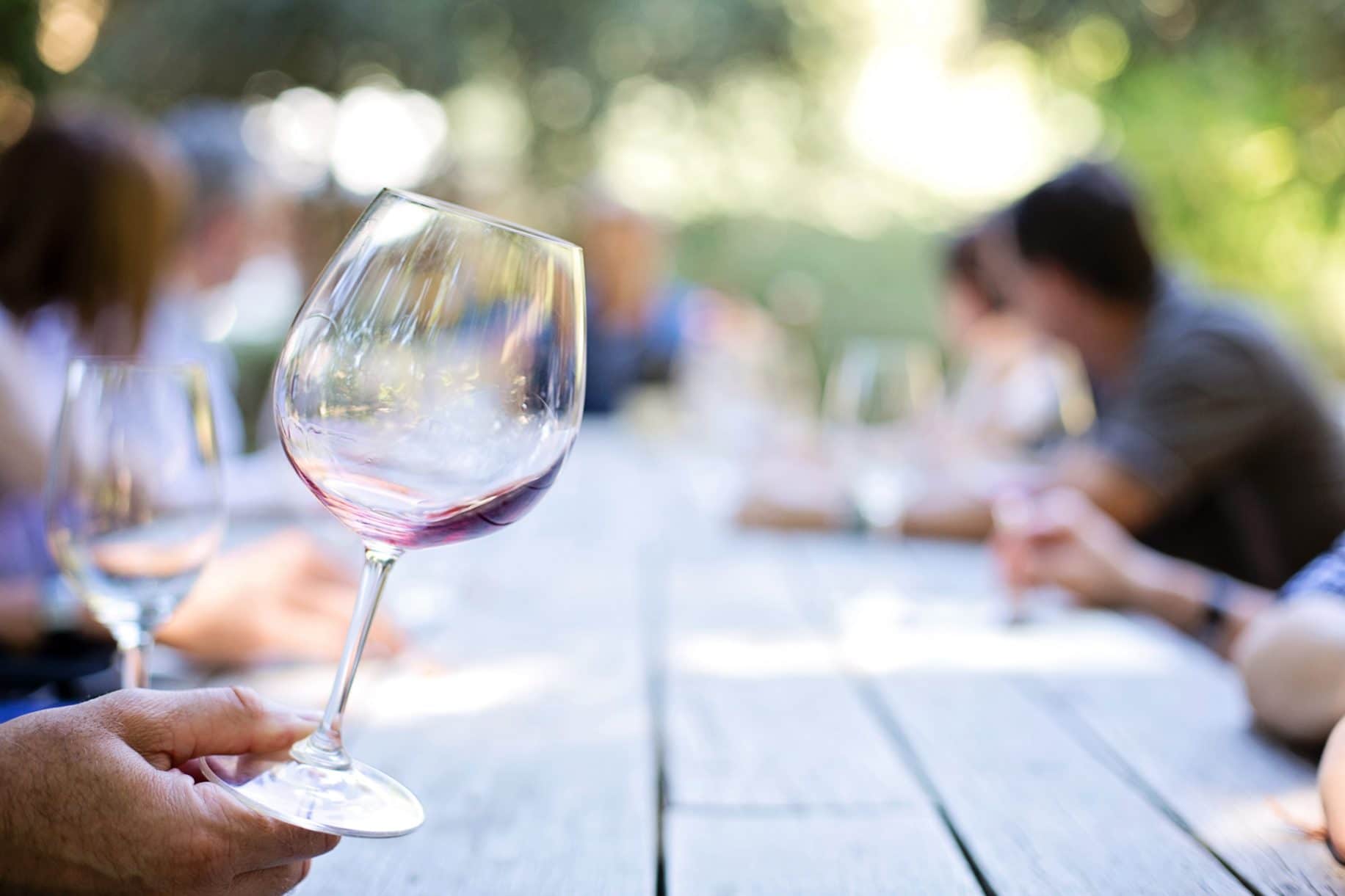

You must be logged in to post a comment.